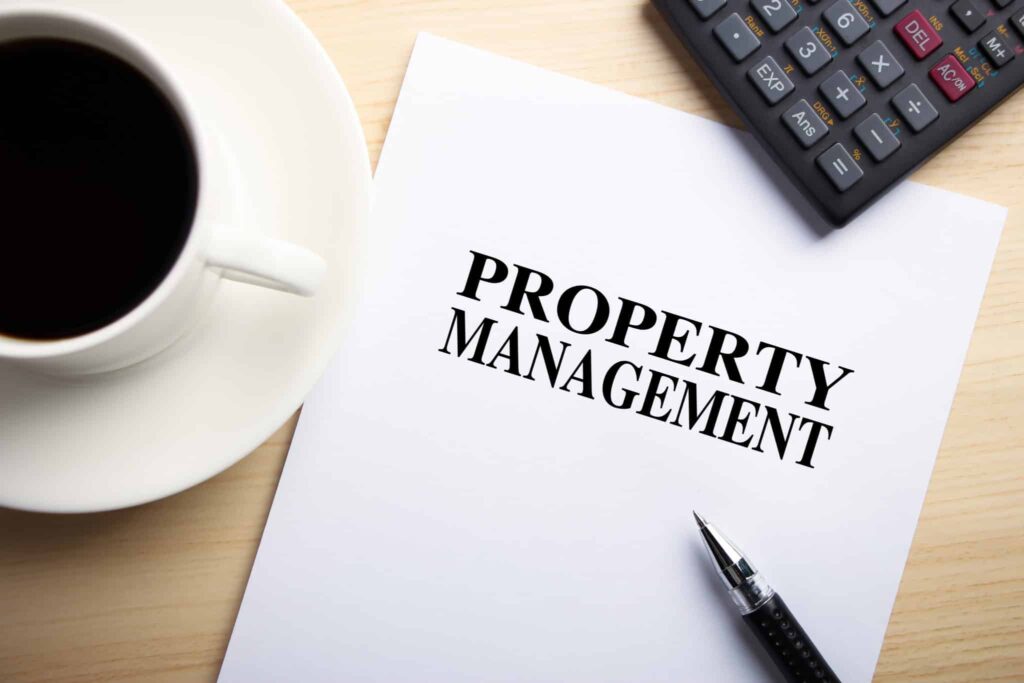Renting vs. Purchasing a Home: What Makes More Sense and Why?

The decision between renting or purchasing a home is one that many individuals face at some point in their lives. Both options have their merits, and determining which one makes more sense depends on various factors. Market conditions play a crucial role in this decision-making process, as they can significantly impact the financial feasibility and long-term advantages of renting or buying a home. In this article, we will explore the key considerations when choosing between renting and purchasing, and how market conditions influence this metric in different real estate cycles. Renting a Home: Renting a home offers flexibility and freedom that appeals to many individuals. Here are some key factors to consider when assessing the advantages of renting: Flexibility: Renting provides the flexibility to move without the burden of selling a property. This is particularly beneficial for those who anticipate frequent relocations due to job changes, personal circumstances, or a desire for a change in living arrangements. Lower Initial Costs: Renting generally requires a smaller upfront financial commitment compared to purchasing a home. Renters typically pay a security deposit and the first month’s rent, whereas buying a home requires a down payment, closing costs, and other associated expenses. Limited Responsibility: Renters are not responsible for property maintenance and repairs, as these obligations generally fall under the landlord’s purview. This can be advantageous for individuals who prefer to avoid the costs and responsibilities associated with homeownership. Accessibility to Prime Locations: Renting can offer greater access to desirable neighborhoods or areas with high property prices, which may be financially out of reach for potential buyers. This allows individuals to enjoy the benefits of a preferred location without the long-term commitment of homeownership. Purchasing a Home: Purchasing a home is a significant financial decision with several potential long-term advantages. Here are some key factors to consider when assessing the advantages of buying: Equity Building: Homeownership allows individuals to build equity over time. Mortgage payments contribute towards ownership, and as property values increase, homeowners can benefit from appreciation. This can potentially result in a valuable asset and long-term financial stability. Stability and Control: Owning a home provides stability and a sense of belonging to a community. Homeowners have control over their living space, allowing them to personalize and make modifications to suit their needs and preferences. Tax Benefits: Homeownership often comes with certain tax advantages. Mortgage interest and property tax payments may be deductible, potentially reducing the overall tax burden for homeowners. It is essential to consult a tax professional to understand the specific benefits applicable in your jurisdiction. Potential Rental Income: Homeownership opens the possibility of generating additional income through renting out a portion of the property. This can be an attractive option for those looking to supplement their finances or build a real estate investment portfolio. Impact of Market Conditions: Market conditions significantly influence the rent vs. buy decision, as they directly affect property prices, interest rates, and rental costs. Here’s how market conditions can change the metric in different real estate cycles: Buyer’s Market: During a buyer’s market, where housing supply exceeds demand, purchasing a home may be more favorable. Lower property prices, negotiable terms, and potential for future appreciation can make homeownership an attractive option. Additionally, low-interest rates during such periods can enhance affordability. Seller’s Market: In a seller’s market, where demand outstrips housing supply, property prices tend to rise. In this scenario, renting may be a more practical choice for those who are unable to afford high home prices. It allows individuals to wait for market conditions to stabilize before making a purchase. Rental Market Conditions: The rental market can also impact the rent vs. buy decision. In markets where rental costs are significantly lower than mortgage payments, renting may be a more affordable choice. However, if rental prices are high and continue to rise, purchasing a home could offer more long-term financial stability and protection against escalating rents. Economic Factors: Market conditions are closely tied to the overall economic climate. During periods of economic growth and stability, property prices tend to rise, making homeownership more attractive. Conversely, during economic downturns or recessions, property values may decline, creating opportunities for more affordable home purchases. Understanding the broader economic conditions is crucial in evaluating the rent vs. buy equation. Personal Financial Situation: Market conditions aside, individual financial circumstances play a vital role in the decision-making process. Factors such as creditworthiness, income stability, and personal savings impact the ability to secure favorable mortgage terms and afford homeownership costs. It’s essential to assess your financial position and consider how market conditions align with your long-term goals. The decision between renting and purchasing a home depends on various factors, including personal preferences, financial situation, and market conditions. Renting offers flexibility and lower initial costs, while purchasing a home provides stability, equity building, and potential tax benefits. However, market conditions can significantly influence this decision in different real estate cycles. During a buyer’s market, purchasing a home may be more advantageous due to lower property prices, negotiable terms, and potential for future appreciation. Conversely, in a seller’s market, renting may be a more practical choice for those unable to afford high home prices. Rental market conditions and the broader economic climate also impact the rent vs. buy equation. It’s crucial to carefully evaluate your financial capabilities, consider your long-term goals, and analyze current market conditions before making a decision. Consulting with a real estate professional and financial advisor can provide valuable insights to help you make an informed choice that aligns with your unique circumstances. Remember, the rent vs. buy decision is highly individual, and what makes sense for one person may not be the best choice for another.
Why Should Investors Partner with an Experienced Property Management Firm for Commercial Real Estate?

Commercial real estate can be a lucrative investment opportunity, but it also comes with a significant amount of responsibility. Managing a commercial property requires a high level of expertise and experience to ensure the property operates efficiently and profitably. That’s where partnering with an experienced property management firm can be beneficial for investors. Here are some benefits of partnering with a property management firm: Better Tenant Retention Rates: A property management firm can help you attract and retain high-quality tenants, which is essential for maximizing occupancy rates and generating consistent cash flow. Experienced property management firms have established procedures for tenant screening, leasing, and retention, which helps ensure that tenants are a good fit for the property and are likely to renew their lease. Reduced Operating Costs: Property management firms have the expertise to optimize the property’s operating expenses, including maintenance, repairs, and utilities. They can also leverage their network of vendors to negotiate lower prices for services, which can save you money in the long run. Improved Property Value: Partnering with an experienced property management firm can help increase the property’s value over time. A well-managed property will attract high-quality tenants, which can lead to higher rental rates and property values. Better Compliance: Commercial properties are subject to a variety of regulations and codes, which can be challenging to navigate. A property management firm can help ensure that your property is in compliance with all relevant laws and regulations, which can help avoid costly fines and legal issues. More Time: Managing a commercial property can be a time-consuming task, especially if you have multiple properties. By partnering with a property management firm, you can free up your time to focus on other areas of your business or personal life. Partnering with an experienced property management firm can provide significant benefits for commercial real estate investors. By working with a reputable firm, you can attract high-quality tenants, reduce operating costs, increase property value, maintain compliance, and free up your time to focus on other areas of your business. It’s essential to carefully vet potential property management firms to ensure they have the expertise and experience to manage your property effectively.
What Should You Expect for Commercial Real Estate During a Recession?

The effects of a recession can be felt across many industries, and the commercial real estate market is no exception. A slowdown in economic activity can lead to a decline in property values, difficulty in finding tenants, and limited access to financing. However, it’s important to note that the impact of a recession on commercial real estate can vary based on property type and location. Office buildings and retail spaces tend to be more vulnerable during an economic downturn since they rely on businesses to occupy the space. Industrial and warehouse properties, on the other hand, may be less affected since they are often leased to essential companies that are less impacted by economic downturns. One significant impact of a recession on commercial real estate is a decrease in construction activity. Businesses may be less likely to invest in new construction or renovations, which can lead to a decline in construction jobs and overall economic activity. Additionally, banks and other financial institutions may be less likely to lend money for new construction projects, further slowing development. During a recession, there may also be a decrease in demand for commercial real estate, which can lead to lower property values. Businesses looking to sell their properties may find it harder to do so or may have to sell at a lower price than they would during a more robust economy. On the other hand, businesses looking to buy commercial real estate may find good deals during a recession due to the lower prices. Despite the negative impacts of a recession, commercial real estate can provide a haven since it is a tangible asset that can hold its value over time. The low prices available during a recession can create opportunities for businesses to invest in commercial real estate that provides long-term benefits. While a recession can significantly impact commercial real estate, it’s important to remember that the market will eventually recover. Businesses that can weather the downturn and take advantage of opportunities available during a recession may be well-positioned for success in the long term.
The Impact of Technology on Senior Living Facilities: Integrating Telehealth and Remote Monitoring Technologies

As Telehealth technology continues to advance and become more accessible, the senior living industry has been one of the many fields to benefit from its innovative solutions. Senior living facilities have started to incorporate telehealth and remote monitoring technologies into their operations, providing residents with improved healthcare services, safety measures, and quality of life. Telehealth technology, including remote consultations with doctors, nurses, and other healthcare professionals, is one of the most significant advancements in healthcare. With telehealth technology, senior living facilities can provide residents with access to healthcare professionals, allowing them to receive medical attention and advice from the comfort of their own home. Remote consultations also reduce the need for in-person appointments and the risk of exposure to illness. Telehealth technology can also monitor vital signs, track medication usage, and manage chronic conditions, allowing for better health outcomes and improved quality of life for residents. Remote monitoring technology is another critical component of technology integration in senior living facilities. This technology includes sensors and cameras that can monitor residents’ movements and activities, alerting staff to potential safety hazards, falls, or other incidents. This technology can also provide insights into residents’ daily routines and needs, allowing staff to provide personalized care and support. Additionally, remote monitoring technology can provide a higher level of security and safety for residents, particularly those with memory-related conditions such as Alzheimer’s or dementia. Integrating telehealth and remote monitoring technologies into senior living facilities has numerous benefits for both residents and staff. Residents can receive improved healthcare services, a higher level of safety and security, and a higher quality of life overall. Staff can benefit from more efficient workflows, better access to information and insights, and increased job satisfaction. Investing in senior living facilities that prioritize technology integration can provide significant returns for commercial real estate investors. Senior living facilities that incorporate telehealth and remote monitoring technologies into their operations are in high demand, as families look for facilities that provide top-quality healthcare services and safety measures. Additionally, incorporating technology into operations can improve efficiency, reduce operating costs, and increase the overall value of the facility. In conclusion, the integration of technology into senior living facilities is a crucial step towards improving healthcare services and quality of life for residents. Facilities that prioritize technology integration can provide residents with the best possible care and safety measures, and attract families looking for top-quality senior living options. Commercial real estate investors can capitalize on the growing demand for technology-integrated senior living facilities, providing both high returns and a sense of purposeful investment.
Senior Housing Industry on the Rise: How Investors Can Capitalize on the Growing Demand for Senior Living Options

The senior housing industry is experiencing significant growth as the baby boomer generation ages into retirement. While new construction has stalled, savvy investors who can identify and cater to the evolving needs of seniors are well-positioned to capitalize on this growing market. By focusing on specialized care options, offering a wide range of amenities and services, and integrating technology into their operations. As the baby boomer generation ages into retirement, the senior housing industry is experiencing a significant resurgence. However, this growth comes at a time when new construction of senior housing has stalled, creating an opportunity for savvy investors to capitalize on the increasing demand for senior living options. According to a report by Senior Housing News, the senior housing industry has seen a 33% increase in year-over-year investment. This growth is being driven by a combination of factors, including the aging baby boomer population and an increased focus on senior health and wellness. At the same time, new construction of senior housing has been relatively stagnant in recent years. This is due in part to the challenges of navigating local zoning laws and the high cost of construction. As a result, there is a significant opportunity for investors to repurpose existing properties or renovate older buildings to meet the growing demand for senior living options. One key trend in the senior housing industry is the move towards more specialized care options. As the population of seniors grows, there is an increasing need for specialized care facilities that cater to specific health needs, such as memory care or rehabilitation services. Investors who can identify and cater to these specialized care needs will be well-positioned to succeed in the senior housing market. Another important factor to consider when investing in senior housing is the evolving preferences of seniors themselves. Many seniors are looking for more than just a place to live – they are looking for communities that offer a wide range of amenities and activities to help them stay active and engaged. This means that senior living facilities that can offer a robust selection of activities and services are likely to be more successful in attracting and retaining residents. Finally, investors in the senior housing industry should be aware of the potential impact of technology on the industry. With the increasing use of telehealth and remote monitoring technologies, senior living facilities that can integrate these technologies into their operations are likely to have a competitive advantage.
What Are The Benefits Of Hiring A Property Management Company For Your Rental Property?

Owning a rental property can be a profitable investment, but it can also be time-consuming and stressful. A property management company can help ease the burden by handling all the day-to-day operations of your rental property. Here are some of the services a property management company can provide to make owning a rental property less stressful: Tenant screening: A property management company will thoroughly screen potential tenants to ensure that you’re renting to responsible and reliable tenants who will take care of your property and pay their rent on time. Rent collection: A property management company takes care of rent collection for you, ensuring that you receive your rent on time every month. They will also handle any late payments and follow up with tenants who have fallen behind on rent. Maintenance and repairs: A property management company will handle all maintenance and repairs for your property, from regular maintenance like landscaping and cleaning to emergency repairs like plumbing and electrical issues. Legal compliance: A property management company stays up-to-date on all the latest laws and regulations, ensuring that you’re always in compliance. They will also handle any legal issues that may arise, such as eviction proceedings or disputes with tenants. Maximizing your investment: A property management company can help you maximize the value of your investment by providing you with advice on how to make improvements to your property that will increase its value and attract high-quality tenants. They can also help you set the right rent price for your property, ensuring that you’re getting the most out of your investment. By hiring a property management company, you can remove the stress of leasing a property and enjoy the benefits of being a landlord without all the headaches.
What Does A Property Management Company Typically Analyze Before Taking On The Responsibility Of Managing A Property?

Investing in a property can be a lucrative opportunity, but managing it can quickly become overwhelming, especially if you don’t have the time or expertise to handle the day-to-day responsibilities. That’s where a property management company comes in. These professionals conduct a comprehensive analysis of the property before taking on its management responsibilities. In this article, we will take a closer look at the elements of a property analysis that a property management company typically undertakes. From physical inspections to financial analysis, you’ll gain an understanding of what to expect from a property management company’s assessment and how it can help you maximize the value of your investment. Conduct an analysis of a property before taking on the responsibility of managing it. This analysis is designed to identify any potential issues or areas of concern, as well as to assess the overall condition and value of the property. Here are some of the main elements of a property analysis that a property management company will typically undertake: Physical Inspection The property management company will conduct a physical inspection of the property to assess its overall condition. This may include an assessment of the exterior and interior of the property, including any common areas or amenities. They will be looking for any signs of damage or wear and tear, as well as any potential safety hazards. Rent Analysis The property management company will conduct a rent analysis to determine the appropriate rental rate for the property. They will assess the current rental market, compare the property to other similar properties in the area, and take into account any unique features or amenities that the property may offer. Tenant Analysis If the property has existing tenants, the property management company will conduct a tenant analysis to assess the quality of the tenants and their rental history. They will look at factors such as payment history, lease compliance, and any previous disputes or legal issues. Maintenance Needs The property management company will assess the maintenance needs of the property, including any repairs or upgrades that may be necessary. They will also develop a maintenance plan to ensure that the property is well-maintained and in good condition for the tenants. Financial Analysis The property management company will conduct a financial analysis to assess the profitability of the property. This may include an assessment of current and potential rental income, expenses such as taxes and maintenance costs, and any potential tax benefits or deductions. The overall goal of a property analysis is to identify any potential issues or areas of concern that could impact the profitability and value of the property. The property management company is seeking to ensure that the property is in good condition, that the rent is set appropriately, and that the property has the potential to generate positive cash flow and provide a good return on investment. By conducting a thorough property analysis, the property management company can develop a plan to address any issues and maximize the value of the property for the owner.
How to Get the Maximum Rent: Tips for Preparing Your Property for the Rental Market

Preparing your property for the rental market can be a daunting task, but it is crucial if you want to attract the right tenants who are willing to pay the maximum rent. Here are some essential steps you can take to increase the appeal of your property: Clean and declutter: Make sure your property is clean and tidy. Remove all personal items and clutter to make it look more spacious. Repair and maintain: Fix any damages, leaks, or other maintenance issues. Ensure that all appliances are in good working condition. Upgrade and improve: Consider upgrading the property to appeal to potential tenants. This could include painting the walls, replacing outdated fixtures, or installing new appliances. Determine fair market rent: Research the rental market in your area to determine a fair rental price for your property. Advertise your property: Use various marketing channels to advertise your property, such as social media, online rental platforms, or local classifieds. Screen potential tenants: Screen potential tenants thoroughly to ensure that they are reliable and trustworthy. Consider working with a property management company: A property management company can help you handle the rental process, from advertising to tenant screening and rent collection. They can also help you manage any maintenance issues that arise during the tenancy. By following these steps, you can increase the appeal of your property and attract the right tenants who are willing to pay the maximum rent. Remember, a little effort in preparing your property for the rental market can go a long way in securing the highest possible rent for your rental property.
What’s the difference between a property manager and real estate agent?

As a real estate investor or landlord, you might be wondering about the difference between a property manager and a real estate agent. Both professionals have distinct roles in the real estate industry, and understanding their responsibilities can help you make informed decisions. A property manager is responsible for managing properties on behalf of the owner. They handle the day-to-day operations, including collecting rent, screening tenants, managing maintenance and repairs, and handling tenant complaints. They also ensure that the property complies with local regulations and laws. On the other hand, a real estate agent helps people buy, sell or rent properties. They assist with property marketing, listing, showing and negotiating deals. They work with clients to identify suitable properties based on their needs and budget and advise on market trends and property values. While a property manager focuses on managing the property, a real estate agent focuses on finding buyers, sellers or renters for the property. They have different skill sets and knowledge bases, although some professionals may have experience in both areas. It’s important to note that some states require property managers to have a real estate license, but not all property managers are real estate agents, and vice versa. When looking to hire a professional, make sure to understand their qualifications and experience to ensure they are the right fit for your needs. In summary, a property manager manages the day-to-day operations of a property, while a real estate agent helps buy, sell or rent properties. Both professions play important roles in the real estate industry and can be valuable assets to property owners and investors.
What is the Role of a Property Management Agent?

What is the Role of a Property Management Agent? As a property owner, it can be overwhelming to manage your property on your own. This is where a property management agent comes in to help. A property management agent is responsible for handling the day-to-day operations of your property. They take care of tasks such as finding tenants, collecting rent, and maintaining the property. One of the primary responsibilities of a property management agent is to find and screen tenants. This involves marketing the property, showing it to potential tenants, and conducting background checks. Once tenants have been selected, the property management agent is responsible for collecting rent and managing any late payments. They also handle maintenance requests, repairs, and emergencies that arise on the property. In addition to managing the property itself, a property management agent also acts as a liaison between the property owner and tenants. They handle any issues that arise and ensure that both parties are satisfied. Overall, a property management agent plays a crucial role in managing your property and ensuring its success. By taking care of day-to-day operations and acting as a liaison, they help to alleviate stress and provide peace of mind for property owners.



